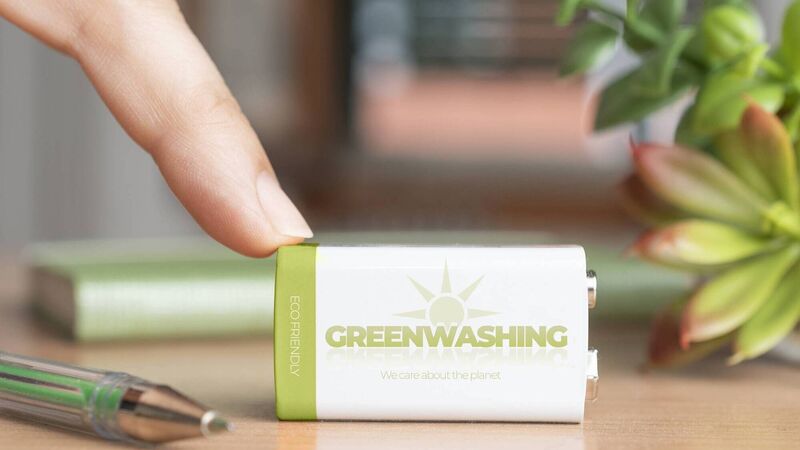Caitríona Redmond: What if you can’t trust the label?

Greenwashing concept, woman hold a finger over a battery with the text: greenwashing, we care about the planet
When I’m doing the messages, I evaluate what I’m buying by reading the label and then decide whether it’s something I pick up. Sometimes I decide to buy a product that has been ethically or locally produced and often making this conscious decision can come at a price.
The best example of this is free range or organic eggs which cost more than farm or hen eggs.






